100 Film Favorites – #16: Merlin
(1998, Steve Barron)
Warning: Exposing a child to the fantasy genre at a young age may result in the creation of a geek.
Today, we’re starting off with a history lesson, to provide a bit of context for this selection.
In the latter half of the 90s, Hallmark Entertainment (yes, the same company as the greeting cards) began producing TV-movies for NBC. These movies, released annually, were typically two-part “miniseries,” aired in the spring on consecutive Sunday and Monday nights. The films were generally of an epic scope and showcased relatively high production values in comparison to other made-for-TV movies. The first such Hallmark/NBC miniseries epic was 1997’s The Odyssey, starring Armand Assante as Odysseus. This is arguably the best of the series, and is still lauded today as a fine adaptation of Homer’s tale. I was blown away watching it as a seven-year-old. The only problem was that the coolest scene, when Odysseus and his crew wound and elude the cyclops Polyphemus, happens relatively early in “Part 1.” Then there’s about a two-hour lull with Odysseus shacking up with Circe and Calypso (I appreciate this part more now). Towards the end things get epic again, with the last of Odysseus’ crew falling victim to Scylla and Carybdis, and Odysseus finally returning home and slaughtering his wife’s many suitors (God forbid she be unfaithful, despite the fact that he has spent the last fifteen years sleeping with assorted sea-goddesses). If you can track it down, definitely give this version of The Odyssey a watch. Unlike Odysseus himself, at least the adaptation is faithful.
The success of The Odyssey prompted Hallmark / NBC to establish an annual tradition of sweeping miniseries, broken into two halves of two hours each. The first film to carry on the torch was today’s selection, 1998’s Merlin, a re-telling of the King Arthur story with a focus on Merlin the wizard. Throughout the various miniseries, a common “stable” of actors is apparent, and you start to see some familiar faces. Isabella Rossellini, who played Athena in The Odyssey, returns as Nimue, Merlin’s love interest.
If memory serves, 1999’s entry was Alice in Wonderland. Martin Short (Frik in Merlin) returns as the Mad Hatter, and Miranda Richardson (Queen Mab in Merlin) as the Queen of Hearts. The film also features guest appearances by celebrities, including Ben Kingsley as the caterpillar, Whoopi Goldberg as the Cheshire Cat, and Christopher Lloyd as the White Knight. This entry in the series feels strangely off-balance, largely due to its different pacing: While the two previous films had aired in two 2-hour chunks, Alice was shorter, broken into one 2-hour part and one 1-hour part.
The next year, the series returned to top form with the last of its truly great entries, Arabian Nights. An anthology of some of the most famous stories from the classic compendium (and some of the lesser known entries as well), the film stars Mili Avital as Scheherazade and features John Leguizamo in a dual role as two different genies. Arabian Nights, like Merlin, was directed by Steve Barron.
Later in 2000, Jason and the Argonauts was released. I’m not entirely certain it should be considered part of the same “series,” but it was a TV miniseries produced by Hallmark and based on a famous legend, so I think it counts. That said, it’s the one entry that I would call “forgettable.” The 2000 Jason and the Argonauts has nothing on the 1963 film featuring stop-motion pioneer Ray Harryhausen’s iconic skeleton battle.
The series lost momentum at this point, and as far as I know, there was no 2001 entry.* Hallmark made a last push in 2002 with Dinotopia, based on author/illustrator James Gurney’s series of picture books depicting a world in which humans coexist with sentient dinosaurs. Billed as the first “mega-series,” the film consisted of three two-hour chunks rather than two, and served as the pilot for a very short-lived Dinotopia TV series (though a full season of 13 episodes was produced, only 6 ever aired). The film is okay, but its shortcomings lie in its exorbitant length and its relatively obscure inspiration (while all previous entries were based on centuries-old myths, the first Dinotopia book was published in 1992). After a tepid audience response to the film and the show it inspired, Hallmark decided to cease its run of annual miniseries epics. To me, this was the moment when the 90s truly ended.
But the Hallmark miniseries can still occasionally be seen on the Sci-Fi Channel (excuse me…”SyFy.” Ugh.) Every once in a while the station will run the series one after another and fill up a day. Sounds like a pretty good day.
The Odyssey and Arabian Nights are both great films and well worth watching. But Merlin has influenced me most of all, inspiring its high ranking on this list.
Set in the 5th and 6th centuries, when the tales of King Arthur likely originated, the film also covers figures and events in the early history of Britain prior to his reign, a period when the Britons (whose bloodlines endure today among the Welsh) faced the prospect of invasion by the Anglo-Saxons. A less historical but just as significant conflict in the film stems from the fact that the spread of Christianity has led many Britons to turn away from their earlier Pagan beliefs. This is bad news for the Pagan deities, who can literally only exist when believed in. As their congregations wane, the Pagan pantheon begins dwindling away. Queen Mab (a Shakespearean figure rather than an Arthurian one), a powerful member of the fey, vows to put a stop to this alarming trend. She magics up a half-fey/half-human being, to be born to a human woman. The child will be named Merlin, Mab declares, and he will grow to be the greatest wizard of all time. Mab hopes that Merlin will be able to influence the human community to return to their Pagan ways.
Lacking traits like love and compassion herself, Mab opts to let Merlin be raised by his human “aunt,” his mother having died shortly after childbirth. In his teenage years, Merlin’s magic manifests for the first time when he uses it to save a young noblewoman, Nimue, from a quicksand pit. Soon, Mab comes to collect on her “contract”: When Merlin first demonstrates his magical abilities, he must come study the craft at Mab’s palace. In his studies, Merlin is taught by Mab’s gnome servant, Frik (Martin Short), an enigmatic character capable of changing his appearance. Under Frik’s tutelage, Merlin progresses from a “word wizard” (able to perform magic by reciting incantations) to a “hand wizard” (performing magic with certain gestures). But Merlin misses his human roots, and seems not to “like magic” after all.
Merlin leaves Mab’s realm to visit his ailing aunt before he can ascend to the highest level of wizardom, the “wizard of pure thought” who can manifest spells simply by thinking of them. His departure infuriates Mab, who kills Merlin’s aunt with a Skyrim-style magic yell. This doesn’t exactly endear Mab to Merlin, and the young wizard swears an oath never to use his magic except to defeat Mab.
Many years pass, and a grown Merlin is now played by Sam Neill (Dr. Alan Grant in “Jurassic Park”). He is summoned to the aid of King Vortigern, a Pagan sympathizer who ousted a previous Christian king, Constant. Vortigern plans to kill Merlin, as he believes the wizard’s blood will allow his frequently-collapsing castle to finally stand. Merlin dissuades Vortigern, saying that his ability to predict the future would be more useful to the king than a few bowls of wizard blood (how exactly predicting the future doesn’t count as “using magic,” I’m not sure). Vortigern agrees, and takes Merlin prisoner. Eventually, Nimue, who turns out to be the daughter of one of Vortigern’s lords, convinces the King to give Merlin freer roam of the palace, and for a while things are hunky-dory.
But then, Merlin learns that Mab is in cahoots with Vortigern, whom she sees as a good candidate for furthering the Pagan faith if Merlin won’t. She is still eager to make Merlin “break his oath,” however. So Mab, not understanding that it would really serve her goals better to earn Merlin’s favor and loyalty rather than his hatred, convinces Vortigern to have Nimue sacrificed to a dragon. Using his magic, Merlin is able to save Nimue once again, but not before she is horribly burned by the dragon’s fire.
Merlin is wizard-pissed and sets off to find somebody to replace Vortigern as king. The difficulty (or perhaps impossibility) of finding a perfect king becomes a key theme of the film from herein. At first, Merlin backs Uther Pendragon, Constant’s heir, and with his magical assistance Uther takes the throne. All is well until Uther becomes obsessed with the wife of one of his lords, going so far as to order Merlin to transform him into the likeness of her husband so that Uther can have sex with her. This weird shape-shift rape is something Merlin immediately regrets, but it does have one positive result: the conception of Arthur.
Merlin takes Arthur under his wing from a young age, attempting to imbue in him the strong morals necessary to succeed where his father and Vortigern had failed, and be England’s perfect king. Again, things go well for a while. Arthur ascends to the throne when he pulls Uther’s sword Excalibur from a stone (where Merlin had sealed it until a righteous king would come to claim it). Arthur constructs the kingdom of Camelot and creates the democratic Round Table. However, things once again go awry when Mab sends a disguised Morgan Le Fay (Helena Bonham Carter) to seduce the young King. Morgan Le Fay is Arthur’s half-sister in this version, and their cursed canoodling results in the birth of Mordred, a sinister child who, due to his dark origins, grows at an accelerated rate.
Later, when Arthur wishes to go questing for the Holy Grail, Merlin seeks counsel from the Lady of the Lake, another of the few remaining Pagan deities (Miranda Richardson in a dual role) to find a proper steward for the kingdom in Arthur’s absence. Merlin goes to her appointed destination and appoints Lancelot to the post…not knowing she had meant him to recruit Galahad instead (Lancelot’s young son in this adaptation). Lancelot knocks boots with Arthur’s queen, and the two ride off together, leaving Arthur disgraced. Meanwhile, Mordred is growing stronger every day, and sowing seeds of discontent within Arthur’s kingdom.
Mab wants the dark-magic tinged Mordred on the throne, and so finally comes up with a plan that serves her goals: Rather than angering Merlin further, she does something nice for him. Using her magic to heal Nimue’s burns (something Merlin’s own magic could not do), Mab offers Merlin and Nimue a romantic hideaway in the woods where they can live happily ever after, all without getting in the way of Mab’s plan to rule England and turn everyone back to the Pagan faith. Nimue is totes down with the idea, and Merlin warms up to it. However, when his wizard-senses inform him that Arthur has been slain on the battlefield by Mordred, Merlin leaves the little honeymoon haven, which immediately seals behind him, Darby O’ Gill style.
Mordred has also died in battle (He and Arthur finished each other off with their respective final blows), leaving Mab without a protege. Now that she and Merlin both have nothing to lose, it’s time to d-d-d-duel, and Mab and Merlin have an epic magic fight that looked a lot cooler when mid-90s CGI was all we had. Though Mab is still the more powerful sorcerer, Merlin has an epiphany. He simply turns and walks out the door, remarking that if no one believes in Mab, she will cease to exist. Despite her screams of protest, Merlin leads the citizenry of Camelot away. As her audience dwindles to nothing, Mab meekly fades away, finally blinking out of existence like a snuffed candle.
It is revealed that Merlin is now an old man, telling his tale in a town square for money. The crowd of listeners disperses, leaving one remaining figure…with pointed ears. An elderly Frik reveals himself to Merlin, who welcomes him warmly (Frik had also eventually turned against Mab). Frik comments that the story “wasn’t exactly as I remember it,” but tells Merlin that he has good news. Following Mab’s death, the effects of her magic gradually began to fade away as well…including the cave wall which had long held Nimue prisoner. The geriatric lovers unite, and Merlin works one final spell, restoring his and Nimue’s youth, that they might finally spend their lives together.
“That’s it,” Merlin says, as he and Nimue walk home, hand in hand. “That’s the end of magic.”
So why do I like Merlin so much? I’d chalk it up to the fact that the film more or less introduced me to the fantasy genre, at the impressionable age of eight. The same year saw the release of The Legend of Zelda: The Ocarina of Time, which likewise influenced me greatly and remains my favorite video game ever made. Swords, sorcery, dragons…it’s cool stuff, and can certainly captivate a young mind.
Secondly, Sam Neill as Merlin makes a great lead. This raises a question I have long pondered: WHY IS SAM NEILL NOT IN MORE THINGS? The most recent thing I’ve seen him in was an insurance commercial or something (in which he was nevertheless still very cool). Neill is likeable, but also has a commanding presence. He should really be in more things. I guess he just doesn’t make the commute to Hollywood from his native New Zealand all that often.
Congratulations! You’ve come to the end of what I’m fairly confident is the longest post to date. I can’t think of any better way to wrap things up than with a few
Tidbits:
-One off-putting element of the film is that in the scene featuring a younger, hotter actress as teenage Nimue, Isabella Rossellini’s distinctive voice is awkwardly dubbed over that of the other actress. Why? Young Merlin isn’t dubbed over with Sam Neill’s voice. Somehow I didn’t even notice this until my most recent viewing of the film this past year.
-On that note, it’s kind of awkward when the villain is considerably better-looking than the protagonist’s love interest. But much like Stacy’s mom, Miranda Richardson has got it going on.
-The film features an excellent score by composer Trevor Jones, who scored several of the other Hallmark miniseries. Check it out:
*Editor’s note: Okay, upon further reflection after writing the original version of this post, I realized there was another installment in the string of Hallmark miniseries. But all I remembered is that it had “Leprechauns” in the title. Apparently it was The Magical Legend of the Leprechauns, released in 1999, the same year as Alice in Wonderland. I guess you can file it with the Jason and the Argonauts adaptation under “forgettable.”
—
Brian Terrill is the host of television show Count Gauntly’s Horrors from the Public Domain. You can keep up with Brian’s 100 Film Favorites countdown here.


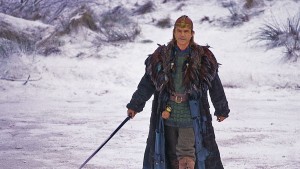

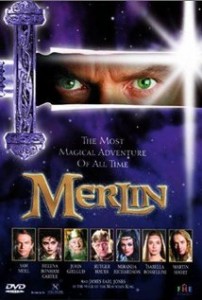
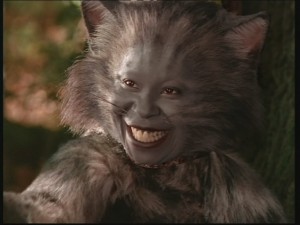

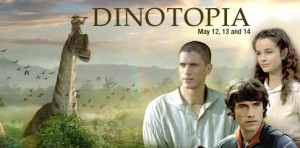
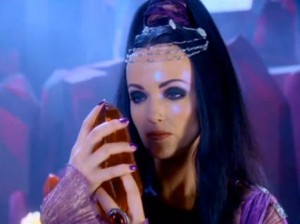


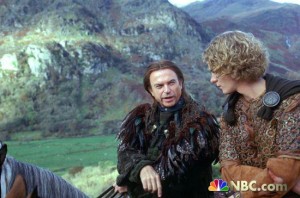

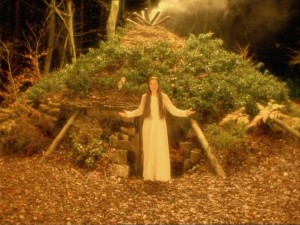
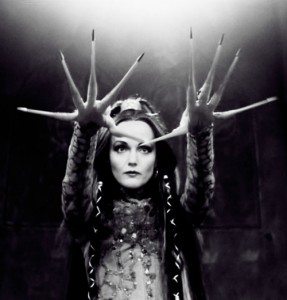
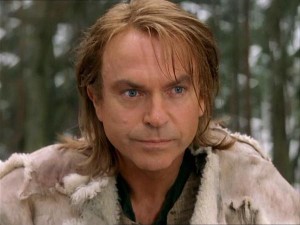
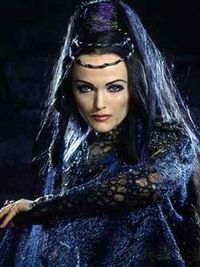
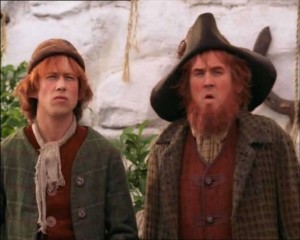



Esta película también es una de mis favoritas, me encanta las películas fantásticas y de magia.
I think you forgot “Voyage of the Unicorn” and “The 10th Kingdom”. Also, “Gulliver’s Travels”. 🙂 But yeah, I agree. My nephew is 8 now and loves “Merlin” too. Inwas afraid it could be too dark and adult for him but nope. Thanks, great review!